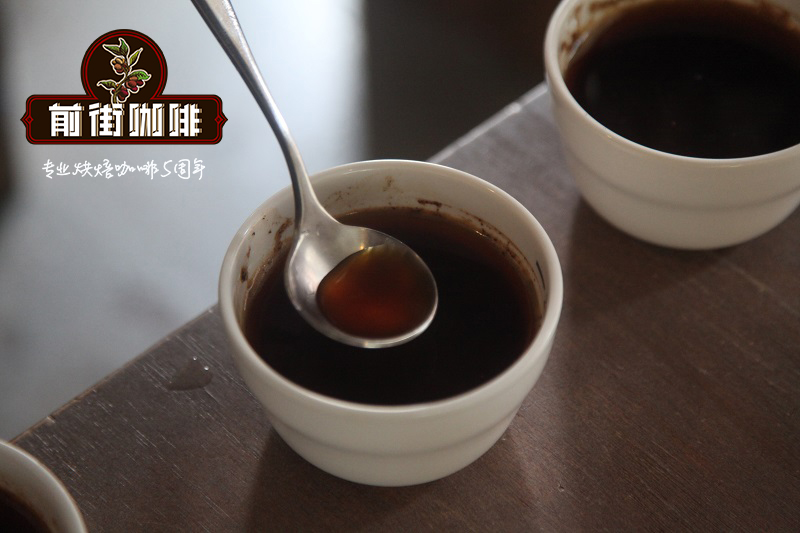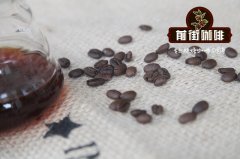Honduran boutique coffee farm beans St. Vincent processing plant crystal manor Parkas seed water washed beans

Professional coffee knowledge exchange more coffee bean information please follow the coffee workshop (Wechat official account cafe_style)
Honduran boutique coffee farm beans St. Vincent processing plant crystal manor Parkas seed water washed beans of the characteristics and taste of the Pacamara variety?
Evaluation:
Dry fragrance: sweet soybean milk, almonds, dried fruit
Wet fragrance: litchi, cardamom, pistachio nuts, flowers, sweet peaches, ginger juice
Madai tea has high sweetness.
Even balance and good cleanliness!
Variety: Pacas variety (Pacas species)
Country: Honduras
Producing area: Pena Blanca town, Santa Barbara (Santa Barbara)
Manor: Crystal Manor
Treatment: washing treatment
The feelings of "taste", "taste" and "aroma" belong to subjective judgment, and the flavor varies according to individual cooking habits. The description of coffee bean flavor is the result of discussion by professional evaluators and is for reference only.
Please evaluate before buying. Food products will not be returned or exchanged after they are sold.
St. Vincent's treatment Plant (Beneficio San Vicente)
San Vicente, one of the ancient classic processing plants in Honduras, is a family-run processing plant, which is well-known locally.
St. Vincent processing plant for the gatekeeper, so that the quality of coffee beans more improved! Provide educational courses for producers to upgrade their technology
Closer to the details of coffee bean production!
In addition to technology, but also improve production equipment!
Each batch of coffee beans must go through the professional cup test and grading of the processing plant, with such a rigorous quality check!
(Mr. Angel Arturo Paz, a famous local agronomist) presided over the St. Vincent treatment Plant (San Vicente)
This is the secret of why the San Vincent processing ground in Honduras is often a long-winning team in the COE (Cup Of Excellence) Cup.
St. Vincent's processing plant buys coffee cherries from farmers in the surrounding towns of El Cielito, Las Flores and El Cedral.
Although the number is so small that it is usually difficult to separate these small farmers' output batches.
However, due to the beautiful and unique climate, the treatment plant gives great help to small farmers in terms of knowledge, technology and economy.
The coffee produced in this area has always been amazing with high sweetness and fruity.
Honduras
Coffee has been grown in Honduras for more than 200 years (it began in 1804)
According to statistics, the planting area now reaches 280000 hectares, all of which are mainly small-scale coffee farmers. 92% of coffee farmers in Honduras belong to small individuals.
Most of its coffee plantations cover less than 3.5 hectares, and these small coffee farmers account for 60% of Hongguo's coffee production! Coffee is a very important crop in Honduras.
In the coffee garden, coffee farmers harvest red fruits, wash and ferment them and grade them according to the needs of the market to meet the different tastes of consumers.
Honduras collects 3 million bags of coffee every year, supplying high quality coffee and unique coffee flavor.
Large quantity and high quality! Now it has become the largest producer in Central America and the top ten coffee exporters in the world.
Honduran coffee has always been of high quality, and its price is the most competitive in Central American countries.
Small, round, slightly bluish-green coffee, mild sour, full and slightly sweet
The United States, Germany and Japan all like Honduran coffee very much! Honduras is already the largest coffee producer in Central America, its production has been increasing in recent years, and coffee is becoming more and more refined.
Important Notice :
前街咖啡 FrontStreet Coffee has moved to new addredd:
FrontStreet Coffee Address: 315,Donghua East Road,GuangZhou
Tel:020 38364473
- Prev

Kenyan boutique coffee farm beans West Hannah Manor French missionary Bourbon grows sun-dried beans
Professional coffee knowledge exchange more coffee bean information please follow the coffee workshop (Wechat official account cafe_style) Kenya boutique coffee farm beans West Hannah Manor French missionary Bourbon planted sun beans flavor and taste characteristics? National Kenya (Kenya) Central Province (Central Provience), Sika (Thika), 1525 meters above sea level, rainfall about 80
- Next

Honduran boutique manor bean Saakastoume family washed coffee bean Pacamara flavor and
Professional coffee knowledge exchange more coffee bean information please follow the coffee workshop (Wechat official account cafe_style) Honduran boutique manor beans Sakastoume family washed coffee beans Pacamara flavor and taste characteristics? Origin: Honduras Manor name: Honduras Saakastoue Family washing treatment method: washed bean seed: Parainema Pacamara Hong
Related
- Detailed explanation of Jadeite planting Land in Panamanian Jadeite Manor introduction to the grading system of Jadeite competitive bidding, Red bid, Green bid and Rose Summer
- Story of Coffee planting in Brenka region of Costa Rica Stonehenge Manor anaerobic heavy honey treatment of flavor mouth
- What's on the barrel of Blue Mountain Coffee beans?
- Can American coffee also pull flowers? How to use hot American style to pull out a good-looking pattern?
- Can you make a cold extract with coffee beans? What is the right proportion for cold-extracted coffee formula?
- Indonesian PWN Gold Mandrine Coffee Origin Features Flavor How to Chong? Mandolin coffee is American.
- A brief introduction to the flavor characteristics of Brazilian yellow bourbon coffee beans
- What is the effect of different water quality on the flavor of cold-extracted coffee? What kind of water is best for brewing coffee?
- Why do you think of Rose Summer whenever you mention Panamanian coffee?
- Introduction to the characteristics of authentic blue mountain coffee bean producing areas? What is the CIB Coffee Authority in Jamaica?

